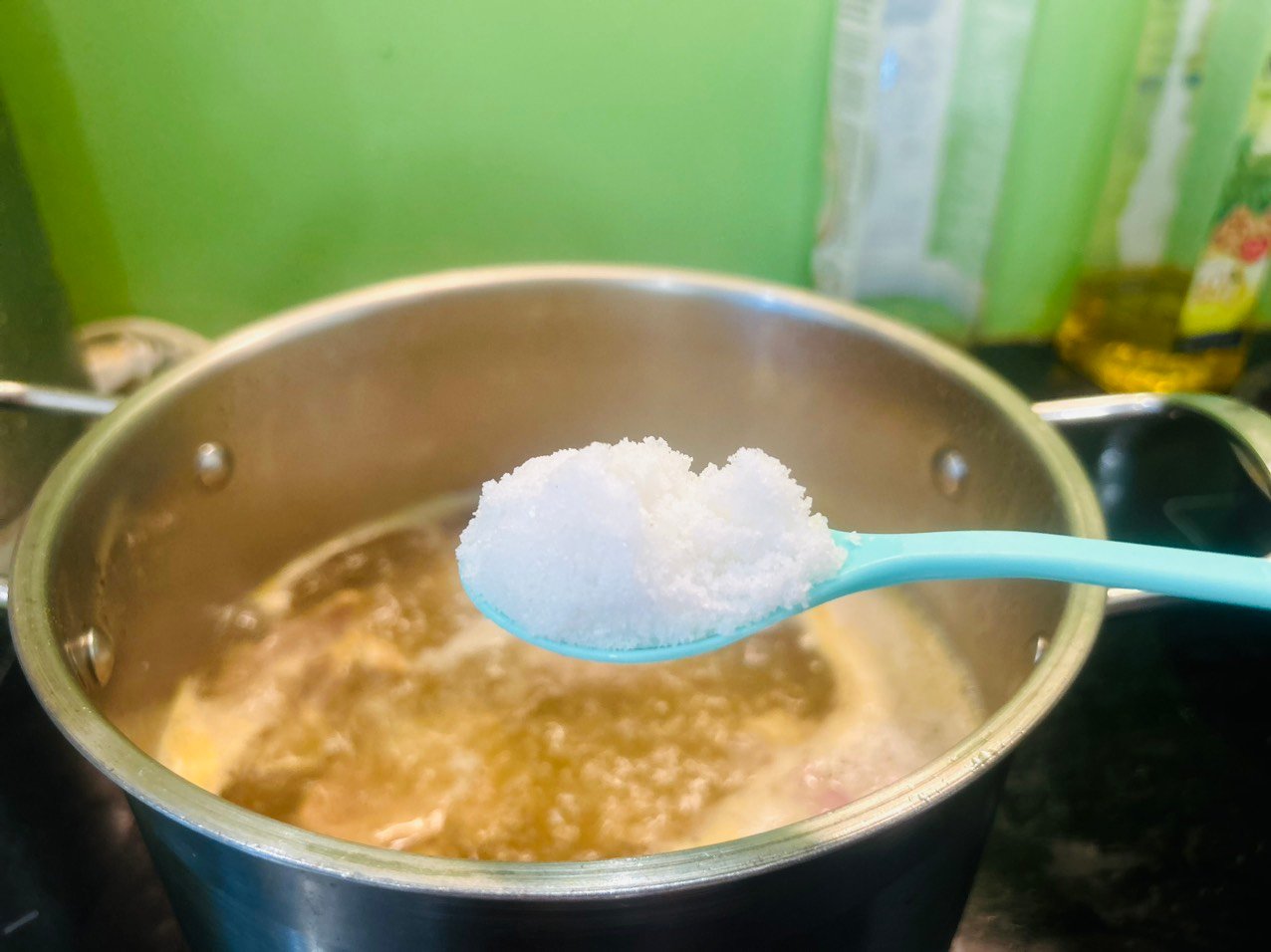According to the Ministry of Health , about 59% of the population does not eat enough vegetables and fruits compared to the recommendation that each person should eat at least 5 servings (equivalent to 400g) per day. On average, an adult in our country consumes 8.1g of salt per day, much higher than the recommendation of the World Health Organization (WHO), less than 5g of salt per day.
The proportion of the population who always or often add salt, fish sauce or salty spices to food when cooking or while eating is 78.2%. 8.7% of people always or often eat processed foods with high salt content. On average, an adult consumes 8.1g of salt per day.
The above information is included in the 2021 National Survey on Non-communicable Disease Risk Factors (STEPS) conducted by the Ministry of Health .
According to the Ministry of Health, an unreasonable diet with few vegetables and a lot of salt leads to limited physical development and stature of Vietnamese people as well as an increase in non-communicable diseases related to nutrition such as cardiovascular disease, cancer, and stroke.

Salty eating habits increase the risk of high blood pressure and many non-communicable diseases.
Risk of high blood pressure, kidney failure, cancer when eating salty food
Nutritionist Nguyen Thu Ha, Saigon South International General Hospital, said salt is made up of about 40% sodium and 60% chloride. Salt is often used to add flavor to dishes or as a food preservative.
Although the sodium in salt is an essential mineral that helps relax and contract muscles, supports nerve impulses, and maintains proper blood mineral and water balance, eating too much salt can cause short- and long-term health problems in a number of ways.
"Eating too much salt can increase blood pressure. High blood pressure is a major risk factor for stroke, heart failure, myocardial hypertrophy, myocardial infarction and many other cardiovascular diseases - the leading causes of death and disability. In addition, eating too much salt increases the risk of stomach cancer, kidney failure, kidney stones, osteoporosis and causes many health disorders," Dr. Ha analyzed.
High blood pressure : High blood pressure is the leading cause of cardiovascular disease. There are many reasons why you have high blood pressure, but the most common is due to eating too much sodium. Because it increases the permeability of cell membranes to sodium, sodium ions will move more into the smooth muscle cells of the blood vessel walls, causing increased water in the cells, increasing the tone of the blood vessel walls, causing vasoconstriction, and increasing peripheral resistance. Eating too much salt makes it difficult for the body to eliminate fluids that you do not need. As a result, your blood pressure increases.

Vietnamese people have the habit of adding dipping sauces while eating.
Kidney dysfunction : The body needs a small amount of sodium to maintain proper fluid balance. However, excess salt causes the kidneys to retain water, which puts stress on the renal system, leading to kidney dysfunction and related health problems.
Promotes weight gain: When your body retains water, you can gain weight. If you gain weight rapidly in a week or even a few days, it may be because you are consuming too much salt. In addition, foods that are seasoned with salt will stimulate your taste buds, making you crave more food and consume more food. For example, meals with salty braised dishes or sour soup will stimulate you to eat more rice. And when you consume too many calories that you cannot burn off, this can contribute to weight gain.
Edema : Consuming too much salt can lead to water retention in the body, causing edema. Salt can cause the kidneys to retain fluid, leading to water retention or edema. This retention occurs because the kidneys sense that the body needs more fluid to compensate for the reduced blood flow. Additionally, high sodium intake can lead to electrolyte imbalance, another cause of edema.

A high protein meal lacking vegetables can cause a lack of vitamins and minerals, affecting the intestines and immune system.
How does lack of vegetables and fiber affect the body?
According to Dr. Ha, eating a lack of vegetables and foods containing fiber can lead to digestive problems, constipation, and long-term effects on intestinal health. In addition, a lack of fiber can lead to lipid disorders, fatty liver, diabetes, etc.
Vegetables contain many vitamins and minerals that are important for health such as vitamin A, B9, folate, C, E, K, potassium, magnesium, iron and zinc. A lack of vegetables leads to vitamin and mineral deficiencies. Lack of these substances can affect the immune system, cardiovascular function and many other aspects of health.
It is important to include vegetables in your daily diet, as they are not only nutritious but can also protect against diseases including diabetes, heart disease, dyslipidemia, obesity and even some cancers.
Source link







![[Photo] Dan Mountain Ginseng, a precious gift from nature to Kinh Bac land](/_next/image?url=https%3A%2F%2Fvphoto.vietnam.vn%2Fthumb%2F1200x675%2Fvietnam%2Fresource%2FIMAGE%2F2025%2F11%2F30%2F1764493588163_ndo_br_anh-longform-jpg.webp&w=3840&q=75)































































































Comment (0)